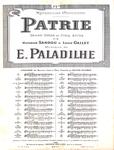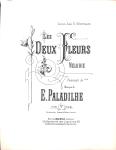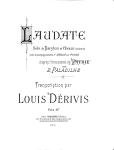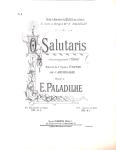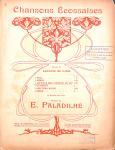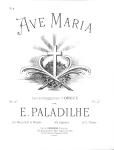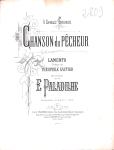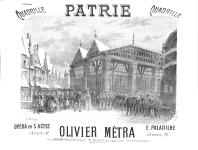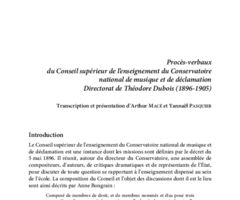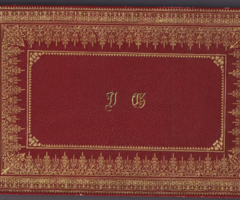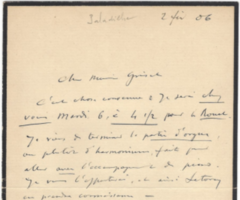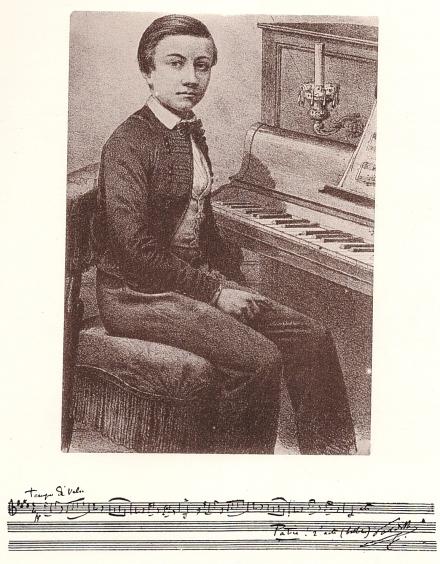
Émile PALADILHE
1844 - 1926
Composer
Émile Paladilhe was without a doubt a child prodigy. He entered the Paris Conservatory at the age of nine, won a Premier Prix for piano and a Second Prix for organ, and studied composition with Halévy. In 1860 he became the youngest winner of the Prix de Rome. Indifferent to the revival at that time of French orchestral music, he devoted his skills almost exclusively to vocal compositions, distinguishing himself through the elegance of his melodic lines, his sense of drama and his mastery of orchestration. His first work to be staged, the one-act opera Le Passant (1872), was a failure. Paladilhe went on to compose L'Amour africain (1875) and Suzanne (1879), before achieving a resounding success with Patrie! in 1886 – one of the last grand operas to be premièred at the Paris Opéra. The libretto by Victorien Sardou and Louis Gallet was based on Sardou’s play of the same name, inspired by theuprising of the Dutch Geuzen during the reign of Philip II in the sixteenth century. It was the last work Paladilhe wrote for the stage. He went on to compose a wide range of sacred music (often with organ), including the oratorio Les Saintes-Maries de la Mer (1892), a Stabat Mater (1905), two mass settings and six motets. Paladilhe also composed many art songs (mélodies), in a style reminiscent of Gounod and Massenet. Born in Montpellier, he also set to music a number texts written in Occitan and Provençal.
Focus
Focus
La mélodie française
Documents and archives
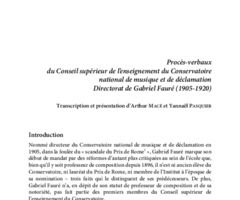
Reports and studies
Minutes of the Conseil supérieur de l’enseignement of the Conservatoire national de musique et de déclamation, directorate of Gabriel Fauré (1905-1920)
Scientific publications
Publication


